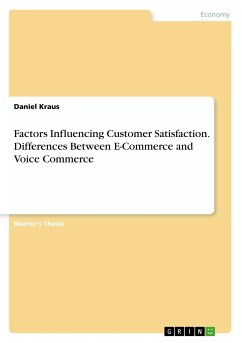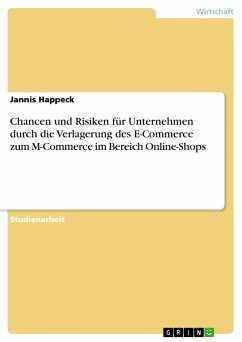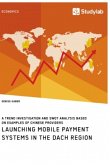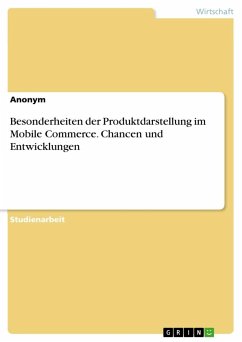Master's Thesis from the year 2018 in the subject Business economics - Trade and Distribution, grade: 1,3, German Graduate School of Management and Law gGmbH, language: English, abstract: This thesis comparatively investigates factors for customers satisfaction in voice commerce and e-commerce to assess the emphasis customers place on factors in both channels. Voice commerce is a newly evolving electronic commerce channel where customers communicate with dedicated systems on smart speakers, mobile phones or other devices using their voice, in order to find and order products.This thesis identifies customer satisfaction predictors that potentially differ between both channels: convenience and transaction process efficiency are based on previous research on chatbot and digital assistant expectations. In the area of recommendations, recommendation personalization (the degree of personalization of product recommendations) is identified from previous research. The construct of recommendation complexity has been created, which is the degree of detail and amount of information recommendations are presented. Differences in this domain of computer-human-interaction are explained by media richness theory, an application of neuro-ergonomics.Data was collected through a survey conducted on the crowdsourcing platform Amazon MTurk. The sample consisted of 178 US consumers that had purchased goods using both e-commerce and voice commerce. Structural equation modeling (SEM) was used as well as multiple regression analysis for statistical hypotheses testing. Two SEM models were created for each voice commerce and e-commerce and both models were compared to investigate comparative hypotheses.This research enables product managers to recognize which factors of customers satisfaction differ from those in e-commerce. While developing their voice commerce strategy and system design, managers should emphasize convenience factors such as ease of use and ease of understanding, as well as an efficient transaction process.
Hinweis: Dieser Artikel kann nur an eine deutsche Lieferadresse ausgeliefert werden.
Hinweis: Dieser Artikel kann nur an eine deutsche Lieferadresse ausgeliefert werden.








